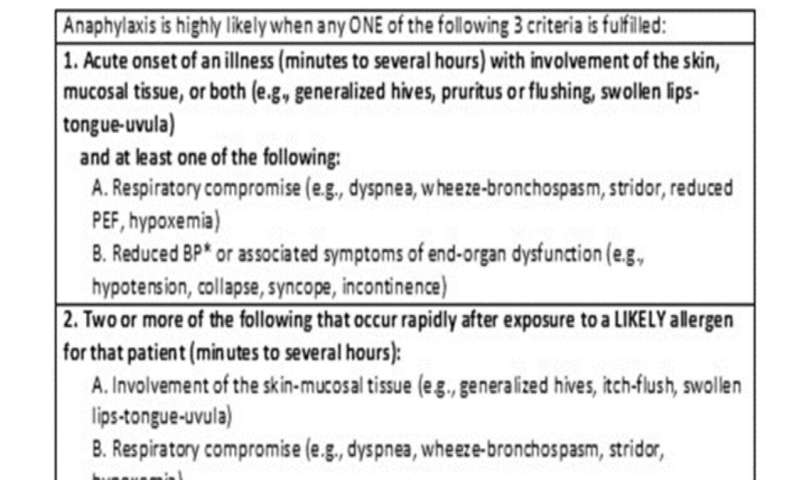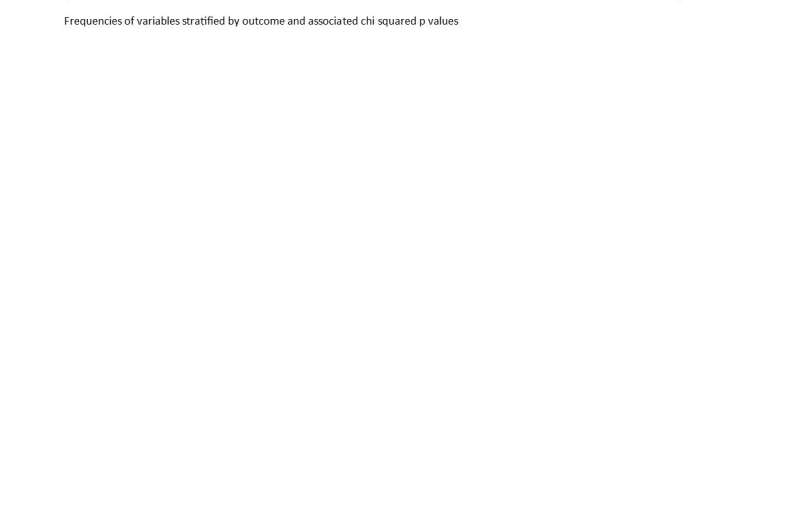Antihistamine use for anaphylaxis symptoms linked with delay seeking emergency treatment

New research suggests that giving antihistamine medicine to a child experiencing anaphylaxis—a sudden and severe allergic reaction that can quickly be fatal—usually does more harm than good by delaying emergency treatment.
A research abstract, "The Association of Antihistamine Administration and Delayed Presentation for Care in Pediatric Patients Admitted with Anaphylaxis," will be presented on Sunday, Oct. 27, during the American Academy of Pediatrics (AAP) 2019 National Conference & Exhibition in New Orleans.
"Anyone experiencing symptoms of anaphylaxis, which can constrict airways and circulation, should seek medical care immediately and use an epinephrine auto-injector if they have been prescribed one," said Evan Wiley, MD, the abstract's lead author and a pediatric resident at Jacobi Medical Center in New York. However, he said, many families first turn to antihistamines and wait to see if they might ease the allergic reaction—a risky mistake.
"While the use of antihistamines might help some allergic symptoms such as rash or itching, those medications will not prevent death from anaphylaxis," Dr. Wiley said. "It is important for patients with anaphylaxis to seek immediate medical care, since the only proven lifesaving treatment is epinephrine, and any delay in receiving appropriate treatment can be fatal."
For the study, Wiley and his research team reviewed the medical records for patients ranging in age from 8 months to 20 years admitted to a community hospital pediatric intensive care with a diagnosis of anaphylaxis between July 2015 and January 2019. They discovered that the majority of patients (72%) who first took antihistamines at home for their symptoms delayed seeking medical care, compared to only 25% of patients who did not take antihistamines.

"What we found was that administration of antihistamine was associated with 7.45 times increased odds of delay in seeking medical care," Dr. Wiley said. He added that more research is needed to confirm this association, but the findings suggest an urgent need to educate families to administer epinephrine and call 911 as soon as anaphylaxis symptoms begin.
Food allergies, the most common trigger for anaphylaxis, are on the rise in U.S. children, according to the Centers for Disease Control and Prevention.


















